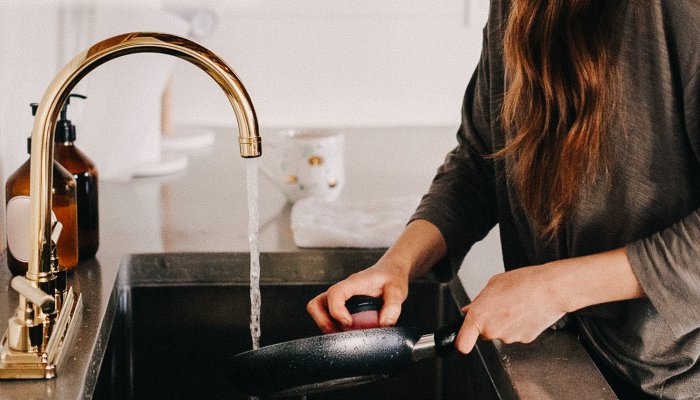
See, when you wash dishes, you’re completely focused on the task at hand. It’s near impossible to multitask (unless, well, you do so with soapy fingers), which is what makes the activity so stellar for brain health: “We say there’s no such thing as multitasking; it’s doing multiple things badly,” says Dean. Your attention becomes compromised as you multitask—and as we noted above, keeping your attention sharp is key for optimizing brain function as you age. So as you get older and your focus becomes more and more affected, multitasking only makes it harder to stay sharp.
That said, it’s less about the actual act of dishwashing than it is about paying attention to what’s in front of you and focusing on the task from beginning to end. “It’s like the Japanese tea ceremony,” says Dean, the ritual of preparing and serving matcha tea. “It’s not about drinking tea or the pot—it’s about the act of going through that in detail, in focus, and in a meditative state.”
Or take baking (that sourdough starter still comes in handy!): Similarly, you’re paying attention to each step, each precise measurement, which silos your focus and can actually become quite meditative. “[You’re] told not to think about anything else—just be with those ingredients and the manipulation of those ingredients into bread,” Ayesha explains. “That’s a great example of maintaining focus and attending to one thing at a time.”
In other words: Yes, dishwashing can help you dial in your focus (and, thus, better your brain), but it’s not the only attention-enhancing activity you can try. Say, if washing dishes or bread baking stress you out, discover another meditative experience that works for you: Other common activities include gardening, knitting, coloring, or crafting.
Source link




































